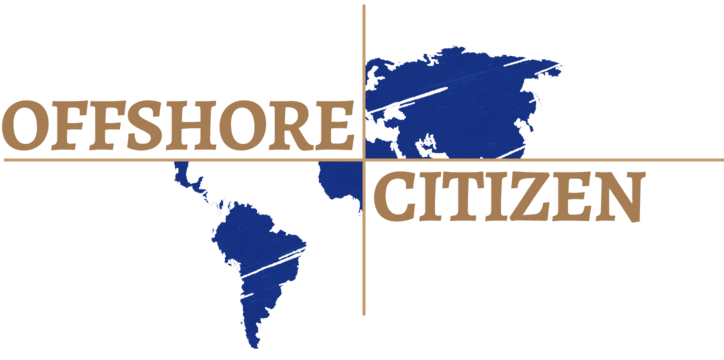Exactly How Offshore Company Formations Job: A Step-by-Step Review for Business Owners
Offshore business formations can provide considerable benefits for business owners looking for tax optimization and property security. The process entails multiple important actions, starting with cautious jurisdiction choice and comprehensive documentation preparation. Engaging specialist services is important for conformity. Numerous neglect the recurring obligations that comply with initial registration. Understanding these complexities can make a substantial distinction in leveraging offshore opportunities efficiently. The next actions are vital for long-lasting success.
Recognizing Offshore Business: What They Are and Why They Issue
The concept of offshore companies might seem complicated, recognizing their basic nature and relevance is necessary for both companies and people looking for to maximize their monetary approaches. Offshore firms are entities registered outside the individual's country of house, frequently in territories that provide beneficial governing settings. These businesses can give various advantages, such as tax optimization, asset security, and boosted privacy.
For business owners, developing an offshore company can facilitate worldwide trade, decrease functional expenses, and broaden market reach. In addition, offshore firms commonly permit structured conformity with international policies. People may also utilize offshore structures to protect personal properties from economic or political instability in their home countries. Eventually, the appeal of overseas firms hinges on their capacity to improve financial flexibility and provide tactical advantages in a progressively interconnected worldwide economic climate - Offshore Company Formations. Recognizing their functional structure and advantages is vital for making educated decisions
Selecting the Right Jurisdiction for Your Offshore Business
Picking the suitable jurisdiction for an offshore company is important for optimizing tax benefits and making sure conformity with neighborhood laws. Different territories supply differing tax incentives and regulative settings that can substantially influence service procedures. A mindful assessment of these factors is vital for notified decision-making.
Tax Advantages Summary
When taking into consideration the facility of an offshore firm, recognizing the tax obligation advantages connected with numerous territories is important. Different places use special advantages, such as reduced or no corporate tax rates, which can greatly enhance profitability. Some jurisdictions give tax obligation rewards for details kinds of services, drawing in business owners looking for reduced tax obligation obligations. Furthermore, specific nations enforce positive tax treaties that reduce double taxes on global earnings, ensuring that companies keep more incomes. The choice of territory also influences value-added tax (VAT) and other local tax obligations. Business owners need to evaluate these elements very carefully to choose a location that lines up with their organization goals, enhancing tax obligation efficiency while continuing to be certified with global guidelines.
Regulatory Atmosphere Considerations
Picking the right territory for an offshore company requires a thorough understanding of the governing atmosphere, as different nations enforce varying degrees of conformity and governance. Business owners must review elements such as legal structures, tax policies, and reporting obligations. Jurisdictions like the British Virgin Islands and Cayman Islands are usually preferred for their business-friendly laws and very little coverage requirements. Alternatively, some nations may enforce rigorous policies that could complicate procedures and increase costs. In addition, the political stability and reputation of a jurisdiction can impact the lasting viability of the overseas company. Consequently, mindful factor to consider of these regulative elements is vital to assure that the picked territory straightens with the business's calculated goals and functional needs.
Preparing the Essential Documents
Preparing the essential documents is an essential action in the overseas company development process. Business owners must gather different legal and identification documents to facilitate their business's establishment in a foreign jurisdiction. Generally, this includes an in-depth business plan outlining the firm's objectives and functional approaches. In addition, individual identification files, such as keys or chauffeur's licenses, are called for from the business's shareholders and supervisors.
In a lot of cases, evidence of address, like energy expenses or bank statements, is necessary to validate the identities of the entailed parties. Particular kinds dictated by the jurisdiction, consisting of application kinds for enrollment, must be finished precisely. Some jurisdictions might also need a statement of the nature of service activities and compliance with local guidelines. Extensively preparing these papers assures a smoother registration procedure and aids minimize potential hold-ups or complications, inevitably establishing a solid foundation for the overseas entity.
Engaging Expert Providers for Offshore Formation
Engaging professional services in offshore formation can significantly boost the effectiveness and efficiency of the procedure. Entrepreneurs usually face complexities that can be overwhelming, making experienced support indispensable. Professional companies focusing on overseas formations provide a wealth of expertise relating to jurisdiction selection, business framework, and neighborhood market problems.
These specialists can assist in preparing necessary paperwork, making sure accuracy and compliance with specific demands. They likewise assist streamline interaction with regional authorities, minimizing the chance of hold-ups or misunderstandings. In addition, professional services can supply insights into tactical advantages, such as tax advantages and asset defense, tailored to the business owner's details requirements.
Navigating Regulatory Compliance and Legal Demands
Understanding the regulative landscape is crucial for business owners starting on overseas firm formations. Conformity with More hints regional laws and worldwide laws is essential to avoid lawful challenges. Each territory has certain needs regarding firm enrollment, reporting, and taxation, which must be extensively researched.
Business owners ought to acquaint themselves with the policies regulating corporate structure, ownership, and operational techniques in the picked offshore place. Additionally, anti-money laundering (AML) and understand your client (KYC) laws often apply, requiring appropriate documentation and verification processes.
Involving with attorneys who specialize in overseas solutions can supply indispensable guidance on maneuvering through these intricacies. Making certain compliance not only shields the company from prospective lawful issues but also boosts trustworthiness with financiers, regulatory authorities, and companions. By sticking to the recommended legal frameworks, entrepreneurs can efficiently take advantage of the benefits of overseas company formations while minimizing risks linked with non-compliance.
Setting Up Financial and Financial Accounts

As soon as a suitable financial institution is determined, entrepreneurs normally require to prepare and submit various documents, consisting of evidence of identification, company registration records, and a summary of the intended service activities. (Offshore Company Formations)
Some financial institutions may additionally need a minimum down payment to open up an account. Entrepreneurs ought to be prepared to answer inquiries pertaining to the source of funds and company procedures. By completely comprehending the financial landscape and following the bank's needs, entrepreneurs can safeguard their offshore business has seamless access to vital monetary services for effective procedure.
Maintaining Your Offshore Company: Continuous Obligations and Best Practices
Maintaining an overseas company includes several recurring obligations that are vital for compliance and operational integrity. Key aspects consist of sticking to yearly compliance needs, maintaining precise economic records, and understanding tax obligations. These aspects are necessary for guaranteeing the firm's long life and lawful standing in its territory.
Yearly Conformity Needs
While developing an overseas firm provides many advantages, it also requires continuous obligations that can not be overlooked. Yearly compliance demands vary by jurisdiction but typically include sending financial declarations and yearly returns to neighborhood authorities. Companies need to additionally pay yearly charges, which can consist of enrollment renewals and tax obligations, relying on the place. Furthermore, lots of jurisdictions require preserving a local representative and a licensed office. Failing to abide by these policies can cause penalties, consisting of penalties or perhaps dissolution of the company. Business owners need to additionally know any modifications in neighborhood laws that might influence their conformity responsibilities. Staying informed and arranged is crucial for preserving the benefits of an overseas company while satisfying lawful responsibilities efficiently.
Keeping Financial Records
Conformity with annual demands is only component of the recurring responsibilities connected with offshore firm management. Keeping accurate monetary records is essential for assuring openness and responsibility. Business owners should systematically record all deals, including revenue, expenditures, and properties. This technique not just aids in internal decision-making yet additionally prepares the company for prospective audits from regulative authorities.
Frequently updating monetary declarations, such as revenue and loss accounts and equilibrium sheets, is crucial for tracking the company's financial health and wellness. Making use of accounting software program can why not check here simplify this process, making it much easier to maintain and produce records compliance. In addition, business owners ought to take into consideration looking for expert audit services to assure adherence to neighborhood laws and best techniques, consequently guarding the honesty and track record of their overseas procedures.

Tax Obligation Responsibilities Review
Steering via the complexities of tax obligation obligations is important for the effective management of an overseas company. Business owners have to understand the tax obligation guidelines of both their home country and the jurisdiction where the overseas entity is developed. Compliance with local tax regulations is crucial, as failure to stick can cause fines or lawful concerns. Regularly submitting essential income tax return, even when no tax might be owed, is typically required. In addition, preserving up-to-date and precise monetary documents is crucial for demonstrating conformity. Seeking suggestions from tax obligation experts accustomed to worldwide tax law can assist navigate these obligations effectively. By carrying out finest practices, entrepreneurs can assure that their offshore procedures remain legally compliant and monetarily viable.

Frequently Asked Concerns
How much time Does the Offshore Firm Formation Process Usually Take?
The offshore company formation procedure typically ranges from a few days to several weeks. Elements influencing the timeline consist of territory, paperwork needs, and responsiveness of monetary and lawful organizations associated with the arrangement.
What Are the Prices Connected With Preserving an Offshore Company?
The costs connected with preserving an overseas business can vary extensively. They generally include yearly registration charges, compliance costs, accounting solutions, and feasible legal charges, depending upon the territory and a knockout post certain service tasks entailed.
Can I Open a Personal Bank Account for My Offshore Business?
Opening a personal checking account for an overseas company is generally not permitted. Offshore accounts must be organization accounts, mirroring the company's activities, thus abiding with regulations and making sure appropriate economic management and lawful responsibility.
Are There Constraints on Foreign Possession of Offshore Companies?

What Occurs if I Fail to Follow Offshore Laws?
Failing to adhere to overseas policies can bring about extreme penalties, consisting of substantial fines, loss of service licenses, and prospective criminal charges. Additionally, non-compliance may result in reputational damages and difficulties in future service operations.
Offshore companies are entities registered outside the person's nation of home, commonly in jurisdictions that supply beneficial governing atmospheres. Selecting the proper territory for an overseas firm is essential for taking full advantage of tax obligation benefits and ensuring conformity with local guidelines. When taking into consideration the facility of an offshore firm, understanding the tax advantages associated with various jurisdictions is essential. Choosing the ideal jurisdiction for an offshore firm needs a thorough understanding of the regulatory environment, as different countries enforce varying degrees of conformity and governance. Additionally, the political security and reputation of a jurisdiction can impact the long-lasting stability of the overseas firm.